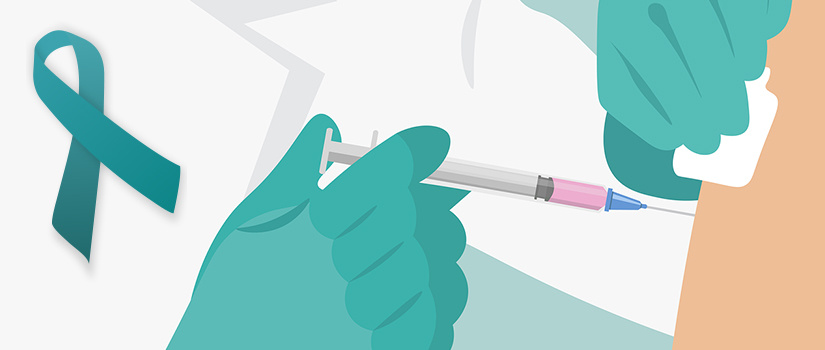January is Cervical Cancer Awareness Month, a time to heighten awareness about a disease that kills more than 4,000 women annually. While early detection is key to successfully treating cervical cancer, the ability to prevent it from ever developing would improve women’s health and save more lives.
Tessa Hastings, Ph.D., assistant professor in the College of Pharmacy’s Clinical Pharmacy and Outcomes Sciences department, is leading research aimed at expanding statewide access to the human papillomavirus (HPV) vaccine. HPV is a cancer-causing infection that is attributable for a wide range of cancers, including cervical and oral cancers.
Considered highly effective and safe, the vaccine has already been shown to be responsible for a 40 percent decrease in the number of cervical precancer cases among women who were vaccinated. The HPV vaccine received approval in 2006 for girls and in 2009 for boys and is routinely recommended for children between 11-12 years old. Children or adolescents starting the vaccine series before turning 15 years old must take two doses, while children starting the series after turning 15 years old, must take three doses.
Hastings, along with coinvestigator Bryan Love, Ph.D. and colleagues from other institutions, seek to improve access to the vaccine, especially in rural communities. “We are currently conducting focus groups with pharmacists and dentists to explore strategies to improve HPV vaccination in rural communities and ways they may be able to work together to meet those needs,” Hastings adds.
Hastings’ research is supported by the American Cancer Society’s Institutional Research Grant Supporting Outstanding Academic Research in Oncology, also known as SOAR, led by Charles Bennett, M.D., Ph.D. SOAR grants support start-up funds for innovative cancer research. SOAR grants fund self-directed junior faculty members in obtaining data that will allow them to successfully compete for peer-reviewed extramural cancer research grants.
Individuals in rural communities, particularly in the southern U.S., tend to have a disproportionately higher incidence of HPV-associated cancer, and lower uptake of the HPV vaccine.
Tessa Hastings, Ph.D. Assistant Professor
“South Carolina saw huge improvement in HPV vaccination with the percentage of individuals 13-17 years of age who were up to date increasing from 41% in 2018 to 53% in 2019,” Hastings says. “However, there is still more work to be done. Individuals in rural communities, particularly in the southern U.S., tend to have a disproportionately higher incidence of HPV-associated cancer, and lower uptake of the HPV vaccine.”
There are benefits associated with a pharmacist’s ability to administer the vaccine. In addition to increased accessibility and convenience, a pharmacist is often the only health care provider in small, rural communities. They can positively influence awareness and education of their patients. “The greatest predictor for receiving a vaccination is a strong recommendation from a trusted health care professional,” Hastings notes.
Under Hastings’ mentorship, College of Pharmacy graduate student Ashley Godwin is focusing her own dissertation research on vaccination efforts in the 18-26-year-old population. Godwin will conduct interviews within this age group to learn their thoughts and barriers to receipt of the HPV vaccine and using this information to develop promotional messages to improve HPV vaccine intention.
